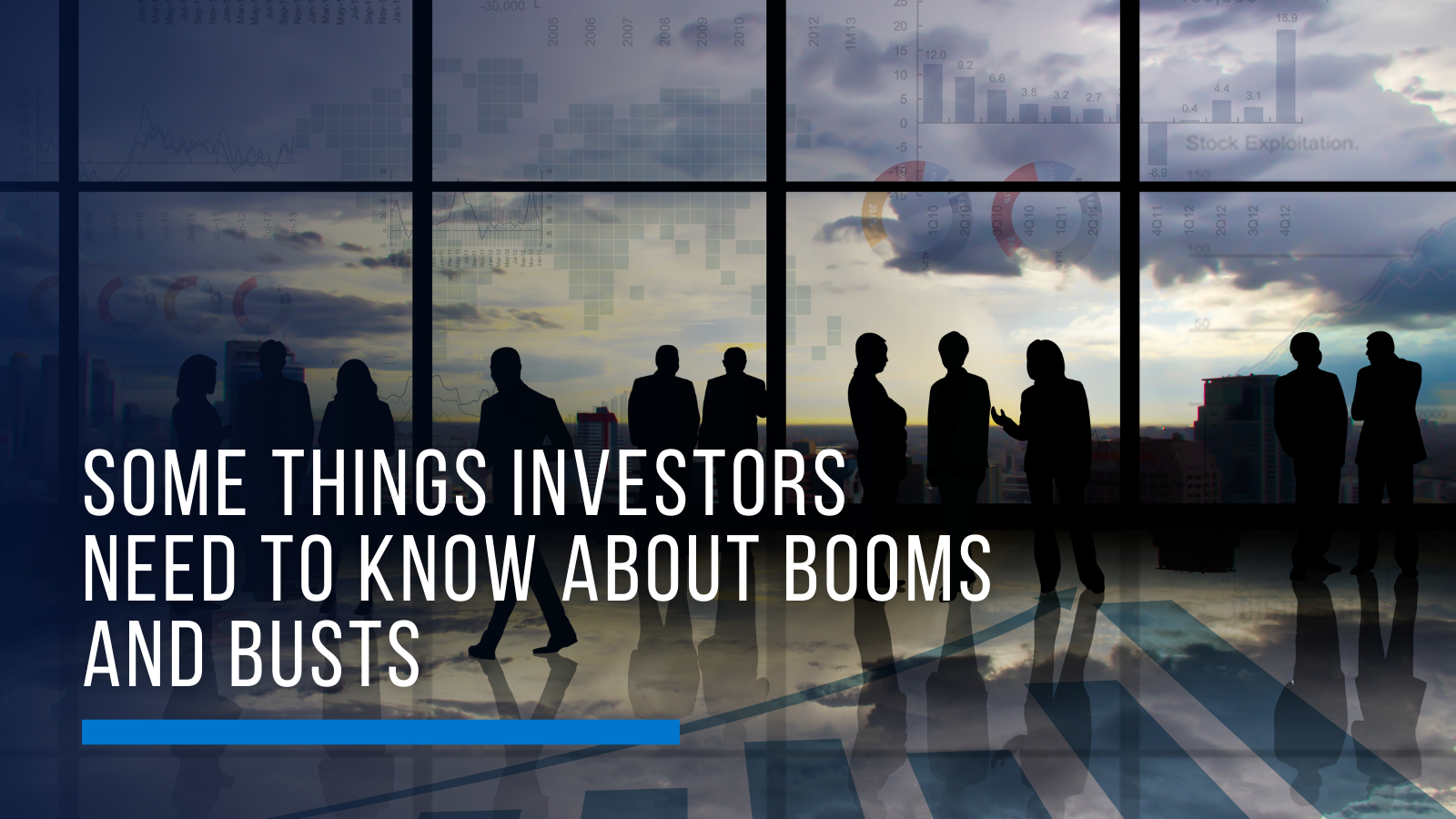Some Things Investors Need to Know About Booms and Busts
Submitted by Neville Associates on July 29th, 2022
Economies and markets are cyclical. They may include periods of wealth creation and times of bursting bubbles that bankrupt companies in a major downturn.
"Boom and bust" cycles may last anywhere from a few months to a few years or longer. During boom times, the economy grows, there are more jobs, and the market provides investors with healthy returns. But during a bust, the economy contracts, jobs are lost, and the market falters. Eventually, these challenges may dissipate and another boom may begin.
What should investors know about the boom-and-bust cycle and what they might do to avoid harm from the next bust?
How Long Do Boom-Bust Cycles Last?
Each boom-bust cycle has its own challenge. Think back to the last few recessions, and you see that each was precipitated by something similar but different:
- The dot-com crash, when the internet was in its infancy and the buzz led to thousands of overcapitalized, under-researched internet startups that quickly fizzled
- The Great Recession, when risky mortgage-backed securities faltered
- The COVID recession, when supply chain issues and uncertainty about the pandemic left companies scrambling to make contingency plans
Some busts are the predictable byproducts of a boom or bubble, while others, like the COVID-induced recession, are more like "black swan" events, which are rare and surprising, causing worldwide impacts.
If you go back to the 1850s, most boom-bust cycles last an average of five years.1 This is one reason it is important for investors to maintain perspective, even when markets are roiling. No matter how bad things may seem, they may turn around if you wait long enough.
Protecting Yourself During a Bust
Knowing that busts are transient may help lower anxiety. Here are some ways to protect yourself when a boom transitions to a bust.
Do Not Make Rash Decisions
Moving investments into cash may be tempting while waiting on the sidelines for conditions to improve before jumping back in. But missing even a few major days in the market each year might hamper your overall returns. Successfully timing the market requires you to be correct twice: exiting at the top (or on the way down) and reentering at the bottom.
Do Not Overleverage
One way for policymakers to curb inflation is to raise interest rates. If you carry high balances at adjustable rates, such as credit card debt or a home equity line of credit (HELOC), an increase of just a few percentage points may make it much harder to pay those bills. Pay down your high-interest debt to avoid a hefty increase in your monthly debt obligations. For example, a $5,000 credit card balance at 15% interest may take about six years to pay off at $105 per month. But if your interest rate rises to 25%, making the same payment means paying off your credit card a whopping 19.5 years later while paying nearly $20,000 in interest charges in the process.
Make a Plan To Cover Your Expenses
Busts may be toughest for the recently retired or those with a fixed income. Setting aside funds in cash may help you manage market fluctuations if you have big expenses coming up soon.
By following these tips and staying on course, you may avoid the stress of the boom-bust cycle while remaining confident in your goals.
Important Disclosures:
The opinions voiced in this material are for general information only and are not intended to provide specific advice or recommendations for any individual.
Investing involves risks including possible loss of principal. No investment strategy or risk management technique can guarantee return or eliminate risk in all market environments.
Past performance is no guarantee of future results.
All information is believed to be from reliable sources; however LPL Financial makes no representation as to its completeness or accuracy.
This article was prepared by WriterAccess.
LPL Tracking # 1-05298171.
Footnotes
1 Boom and Bust Cycle, Investopedia,
https://www.investopedia.com/terms/b/boom-and-bust-cycle.asp

